#(For employees only)
Explore tagged Tumblr posts
Text
While I do find it funny that henchmen in Gotham probably warn each other about the Red Hood because he's a bat who will actually kill you. I think it would be better if Jason was actually seen as some sort of savior or idol to like 90% of the goons scattered around Gotham. Doesn't matter who they work for, they all know Jason, former crime-lord that took over majority of Gotham's underground in one night.
---
Jason, years after the events of UTRH, now fighting crime alongside the batfam, except every goon he runs into immediately recognizes him, stops fighting, and starts begging.
the first time it happens, Jason assumes they're begging for their lives only to hear them begging for him to return to the crime lord business so they can work for him and not Gotham's current money-stingy, abusive rogues (Black Mask lol)
---
Jason showing up to patrol as backup for Dick in an overrun warehouse full of Two-Face's henchmen and as Jason's about to interfere, one of the men stops dead in their tracks and stares really hard at Jason until:
Goon: Oh my God, boss, is that you?
Jason, pulling out his guns, about to shoot:
Goon: Mr. Hood, sir???
Jason, halfway about to pull the trigger: Wait a min–Jeremy? Oh wow, it's been ages! How's the wife?
Goon (Jeremy): Oh my God it IS you, holy shit where have you BEEN? Me and the guys miss you, man!
Dick, with a knife at his throat: What is happening right now
Jason: Ahh, well, crime-lording just wasn't fitting in on the daily schedule. Tryna turn over a new leaf and all that
Goon (Jeremy): Aw, that's disappointing. We really liked working for you, right guys?
[Chorus of enthusiastic "YEAHS" from the rest of the henchmen (even the one holding Dick at knifepoint)]
Goon (Jeremy): Well, anyways, I can't beat you up knowing you're my old boss! You gave us the best health benefits! We'll just let you take the evidence and leave.
Jason: Aw, thanks guys :)
---
And that's why 95% percent of Jason's missions in Gotham end in success. Not because he's willing to kill people or because rogues are terrified of him, but because 90% of the rogues' henchmen once worked for Jason and fuckin love him lol.
#jason: are you sure your boss wont be mad?#jeremy: he's only mad like 50% of the time im sure we'll be fine#jeremy: also we hate working for him.#jason todd absolutely treats his employees well u cant convince me otherwise#dick after the mission: the HELL was that??#jason fondly: just my goon children. im so proud of them for moving onto weapons trade instead of drug dealing :)#dick: that man was older than you. pretty sure most of them were older than BRUCE#jason: dont disrespect my family like that.#dick: Jason IM your family. i was literally held at knifepoint during your little reunion and you did NOTHING#jason todd#red hood#dick grayson#nightwing#batfam#batfamily#batkids#batbros#dc comics#incorrect quotes#headcanon#crack#fanatical posting
8K notes
·
View notes
Text
at the end of the day when it comes to padmé i think it’s really important to remember that her closest friends are literally her employees. her only other friends are her coworkers. her closest friend for years was a girl she met at 14 whose job it was to pretend to be her and potentially die about it. another friend with the same job died in her arms while pretending to be her. she does not have friends outside of her squad of employees who pretend to be her and sometimes die about it and then her politician coworkers. too many of you are way too surprised that this woman is not normal about love or relationships or her own self considering all this
#too many people get caught up in the Girl of it all with the handmaidens and forget they are not normal gal pals actually#at the end of the day that is a child queen and her child employees who did a brief child soldier stint#and then the senatorial ones are just regular employees except their job is insane#and those are her only friends!#padmé amidala#padme amidala#star wars#keat.txt
5K notes
·
View notes
Text
In the past, people in the Animal Crossing community would make fun of Tom Nook as a sleazy landlord. Since then, he's really rehabilitated his image as this 'heart of gold' businessman (he's the one who puts bells and furniture in trees for you to find! he adopted orphans! he donates to charity!), but New Horizons genuinely paints the most devious version of him.
He's successfully privatized settler colonialism: you pay HIM to move to a "deserted island" (which apparently the oceans in the AC world are just full of) and start a colony that he is directly invested in. At best he's running a weird vacation package scam (you arrive on the island with no money and in debt for "using his services"). At worst, he's using you to set up company towns. For god's sake, he literally has his own fake currency that he forces you to use to pay off your debt. But don't worry, he's repackaged it in a way that definitely doesn't sound like an MLM scam: the Nook Mileage Program!
You're no longer just his tenant or his temporary part-timer, you're his business lackey. The entire tutorial section of the game has you spending actual weeks running around completing tasks and doing hard labor to set up his colony. You're even tasked with preparing his properties and finding buyers for them. No, you aren't a tenant anymore. You work for the landlord. You are directly responsible for finding tenants for him. And he doesn't even fucking pay you. Not for setting up town hall and museum, or his nephew's shop –– which is the ONLY store on the entire island that sells necessities –– or bringing KK Slider to town, or helping populate his town. Not a single cent. No, actually, you have to pay HIM to BUY infrastructure like bridges and stairs and park benches. And all the while, he's telling you're the "resident representative"; you get to call the shots! That the reward is the community's progress. That what you're doing is in everyone's best interest (but most importantly, his).
Since NH's release, people have done a lot of legwork to say that Tom Nook isn't a capitalist while the game shows him at his very worst. He owns the only general store in town. You're forced to use a phone that he modified and branded as his own. Buy Nook-branded furniture and merchandise at the self-serve kiosk in the town hall, a governmental building! There's no conflict of interest here!
But hey, if you're tired of being the landlord/business mogul's goon, you can also find work as a deluxe resort home designer for a company that also pays you in their special company currency that can only be used to buy their products instead of a real salary! Because that's what the Animal Crossing franchise needs! More vacation homes!!!
#this is a really long winded way to say i really really really really hate new horizon's storyline and player role#i really hate that not only your house but the entire TOWN. the whole COMMUNITY you're a part of is owed to tom nook's business#i really hate the “vacation getaway package” angle because it shows just how commercialized the entire premise of nh is#and how lost the game is in its original core concept#animal crossing is about the experience of moving to a new town and becoming a part of that community#just to compare: all past ac games have a similar opening#you're on a bus or train or taxi to someplace new. a stranger strikes up a conversation and you get to know them before arriving#new horizons opens with you at customer service desk filling out an client application before a flight.#in prev games working for nook in the tutorial is meant to be demeaning. you want it to be over with so you can actually start living life#but in new horizons working for tom nook IS your life. and it's so rewarding! don't you feel rewarded?#you aren't a person. you aren't a new neighbor. you're tom nook's client. and then his unpaid employee. and the game insists it's fun to be#that's how void the game is#because it's bad enough that a rpg life sim got turned into a sandbox game where you have to build the town yourself#but the only reason why you're building it is because the landlord who you're in debt to TOLD you to build it.#everything is a rewards program! everything is a tour service! be sure to do your daily tasks to earn nook bucks to spend on nook merch!#that really sucks imo.#i mean. the entire game is based around the vacationing industry. of course it all feels fake and temporary. it's only a vacation.#long post#rant#not art#god the fact that your starter villagers can't even decide where to live you have to decide for them#i've never played a game that does the opposite of handholding#where instead it's the PLAYER who has to handhold the npcs through everything. and newsflash!! it's really exhausting and boring
3K notes
·
View notes
Text


the fritter (frin critter)
#inspo struck right after posting the last two. some kind of a hermit crab. a snail#they think they look all cool and mysterious under their safety shelter but if u remove it they're a disastrous puffball of uncombed fur#the hat is not accurate to an adult human btw. i tried to put them in a full size hat and they were lost forever. this is a child sized hat#they need to swap out for bigger hats as they grow#MY FRIENDS WROTE AND DREW SO MUCH FOR THE FRITTER I HOPE THEY CAN REBLOG AND ADD BC THEYRE SO GOOD <3#we started making a whole au about critter species in the wild and how they interact and survive. very fascinating.#i need to collect all the worldbuilding into one place eventually. rn all i'll say is.. overworked odile petsmart employee (tealgoat's idea#isat critters#isat#in stars and time#isat siffrin#my art#a6se/twohats (this tag only) implication then is that loop is bald i guess aksdks. loop = wild shorthair. fritter = domestic longhair.
3K notes
·
View notes
Text
Dcxdp
Dan/Danny/Dani 4/5
After leaving Amity Park, Danny and Jazz had settled in Gotham. Danny got a low level security guard job at Wayne Enterprises while Jazz started her job at Arkham Asylum. Most would assume Danny had the job with the least drama.(They would be wrong.)
You see, while Danny was a security guard, he also would occasionally help out in other departments, which lead to some people getting…. possessive.
The Aerospace department had already practically adopted Danny after he ranted about how cool space was and came up with several feasible features to a new design. R&D found Danny to be a delightfully clever person whose brain was on par with their best minds, and they would trade their souls to pick his brain. Biotech adored his outlook on things and his weirdly accurate observations. The Cybersecurity department had never met anyone who could make better firewalls(though he did promise his friend Tucker, who he apparently learned everything from, would apply soon.) Even Legal liked him, since he was good with paperwork and pointing out possible loopholes.
Security was fighting the other branches back with a stick. Danny was theirs first!
#everyone loves danny#dcxdp#dc x dp#funny#the only thing all departments agree on is Danny is amazing#and that they had to make sure no one else took him#whenever they collaborate with another company#they make sure Danny is with a different department and kept busy#Danny is oblivious#the employees are debating whether or not to get him adopted#or have him marry in#or if they should just block the Wayne’s from meeting him all together#meanwhile Jazz’s main patient is Waylon Jones#and he adores her
969 notes
·
View notes
Text

We all love Frater Imperator but based on the 'tax season' chapter I don't think he's going to be very good at the job actually.
(This is a vine btw)
#50 year old man#in retrospect i think he only had the '2nd most employee of the month awards' because psalterian is the only other employee#ghouls don't count they don't get paid#ghost band#copia#the band ghost#frater imperator#sister imperator#shitghosting#my art
2K notes
·
View notes
Text
and they were calling him a feminist king



source
#so many of these referencing her employees 🥴 blake was definitely not the only one experiencing this behavior#blake lively#justin baldoni#it ends with us
445 notes
·
View notes
Text






hi yes it's Agent Walker and Agent Smith yet again..!! continuation to this post. i cant come up with anything new LOL
Aaand before i make myself think i mischaracterised my fav characters again, i'll point out that Agent Smith doesn't really do Agent Walker's paperwork all by himself. He actually gives most of it to his department's employees. Why is he like this.
...another thing i forgot to point out in the last post prequeling this one, Agent Walker's videogames got confiscated and won't be returned until he finishes his current paperwork!! (They found out he was making his employees do his paperwork. like Agent Smith over here...)
+ the last image text says, *(Agent Walker) doesn't notice the slight reduction in paperwork nor the fact that it's TIDIED because he's too woozy
#ninjago#ninjago fanart#ninjago au#ninjago dragons rising#ninjago kai#ninjago jay#agent walker#agent smith#plasmashipping#teshfarts#one last. thing.#Agent Smith's employees eventually turn on him and make the Administrator give him the amount of paperwork he rightfully deserves.#kind of like going through a department ton of lawsuits. idk i only watched ace attorney#so sometime way after Agent Walker finally deals with all his quadrupled paperwork#he catches AGENT SMITH sleeping. cute right? haha . ha#he doesnt help him though because he knows HE was the reason he got his first punishment in the first place. snitch#why did they even make these guys the manager. they suck at being managers
897 notes
·
View notes
Note
I love Jazz being a banshee. I'm just imagining that instead of letting out a horrible ear piercing wail of pure agony he just. harmonises in a weirdly beautiful way
Oh god yes yes yessss THIS
Now imagine. Like. it's incredibly powerful magic. Banshee's scream is a harbinger of death and Jazz rarely uses it.
And then one day, it just so happens that Prowl hears it. And Jazz is completely devastated at first, because he thinks he's killed an innocent(ha) mech. But time passes, and Prowl?? Is still there??
Basically just think about the fact that anyone who hears Banshee scream is doomed to die, but it doesn't apply to Prowl because he's a golem and doesn't technically qualify as "alive"

#maccadam#monster hunter au#I swear if I only had like.....a hundred employees to draw everything I keep imagining#I can never stop myself from thinking about every character being in any of my aus#jazz
449 notes
·
View notes
Text
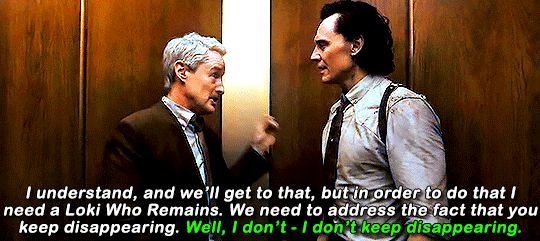

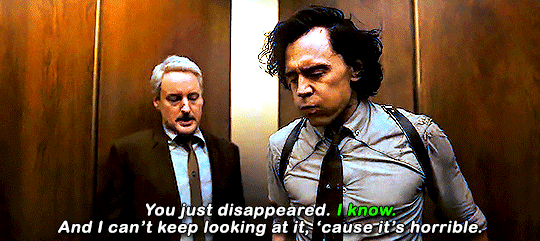
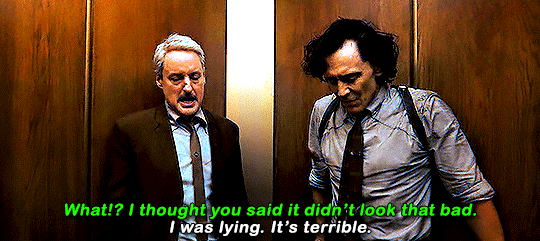

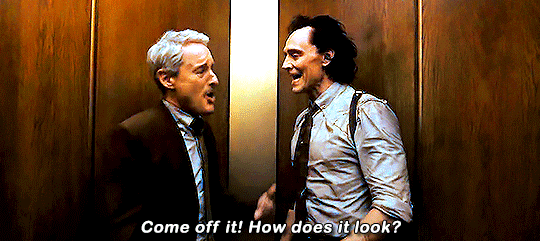
Mobius, I know you’re trying to help me, but we should be dealing with the bigger problem here. He Who Remains.
#mobius#loki#lokius#mcuedit#marveledit#lokiedit#loki spoilers#them crammed in the corner only to pan across a whole damn mile of empty space to that poor employee took me OUT 💀🤣#and loki trying to move even closer!!!#no matter which timeline they'll never learn personal space i'm sure of it 🙏💖#and fr their chemistry... god i'd watch them go back and forth on a topic of choice over literally any other media in existence#also i'm so obsessed w/ the way owen says 'horrible' PLEASE don't ask how many times i've replayed the clip .___.#owen wilson#marvel#owenwilsonedit#dianagifs
3K notes
·
View notes
Text
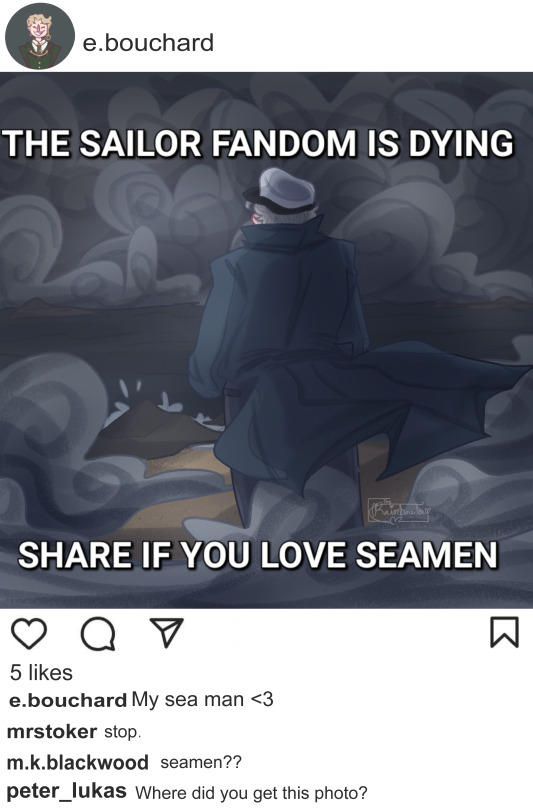
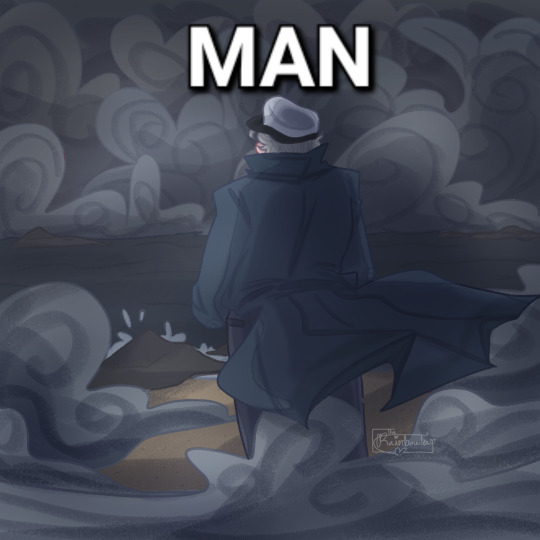

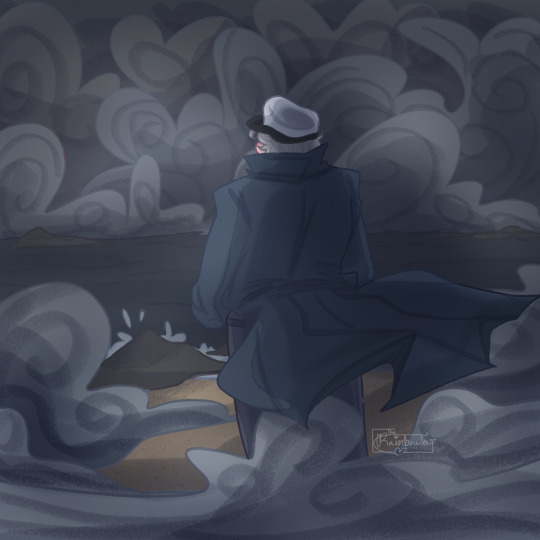
POV: Your husband has Instagram
#tma#the magnus archives#magnus pod#elias bouchard#peter lukas#lonelyeyes#peterelias#my art#this has been sitting in my drafts for a few months now so I think it's time to finally post it#Elias only posts stupid shit like this to A) piss off his employees and B) piss off Peter
3K notes
·
View notes
Text
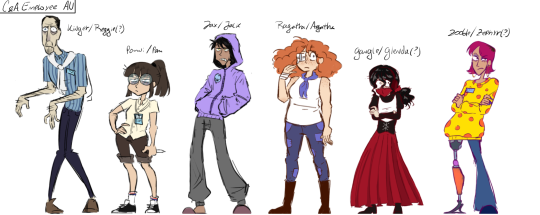

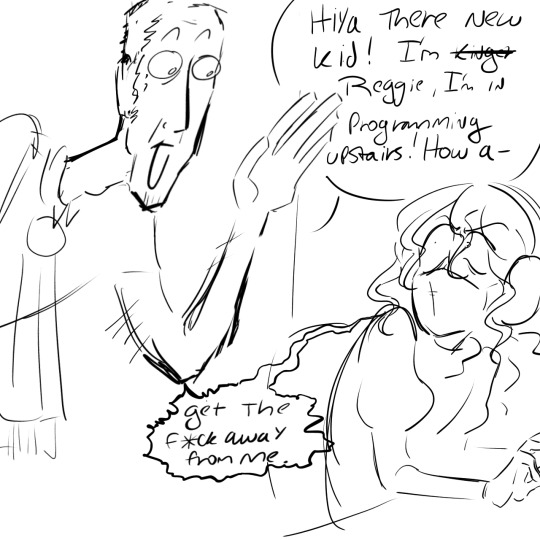
The reference sheet is completeeee HAAAAAAAAAAAAAAA
Have some more sketches whilst I'm at it
Ps: every name that has a question mark next to it it's because it isn't set in stone yet- like zooble's. I legit just searched Non Binary names with z cuz my mind is empty and I liked that one-
#i plan to make smt a lil more complicated#like an animatic#animation or comic but only time will tell#and i have negative time rn cuz i spemt it all making this stuff#tadc employee idea#tadc gijinka#tadc pomni#tadc gangle#tadc ragatha#tadc jax#tadc zooble#tadc kinger#the amazing digital circus
2K notes
·
View notes
Text
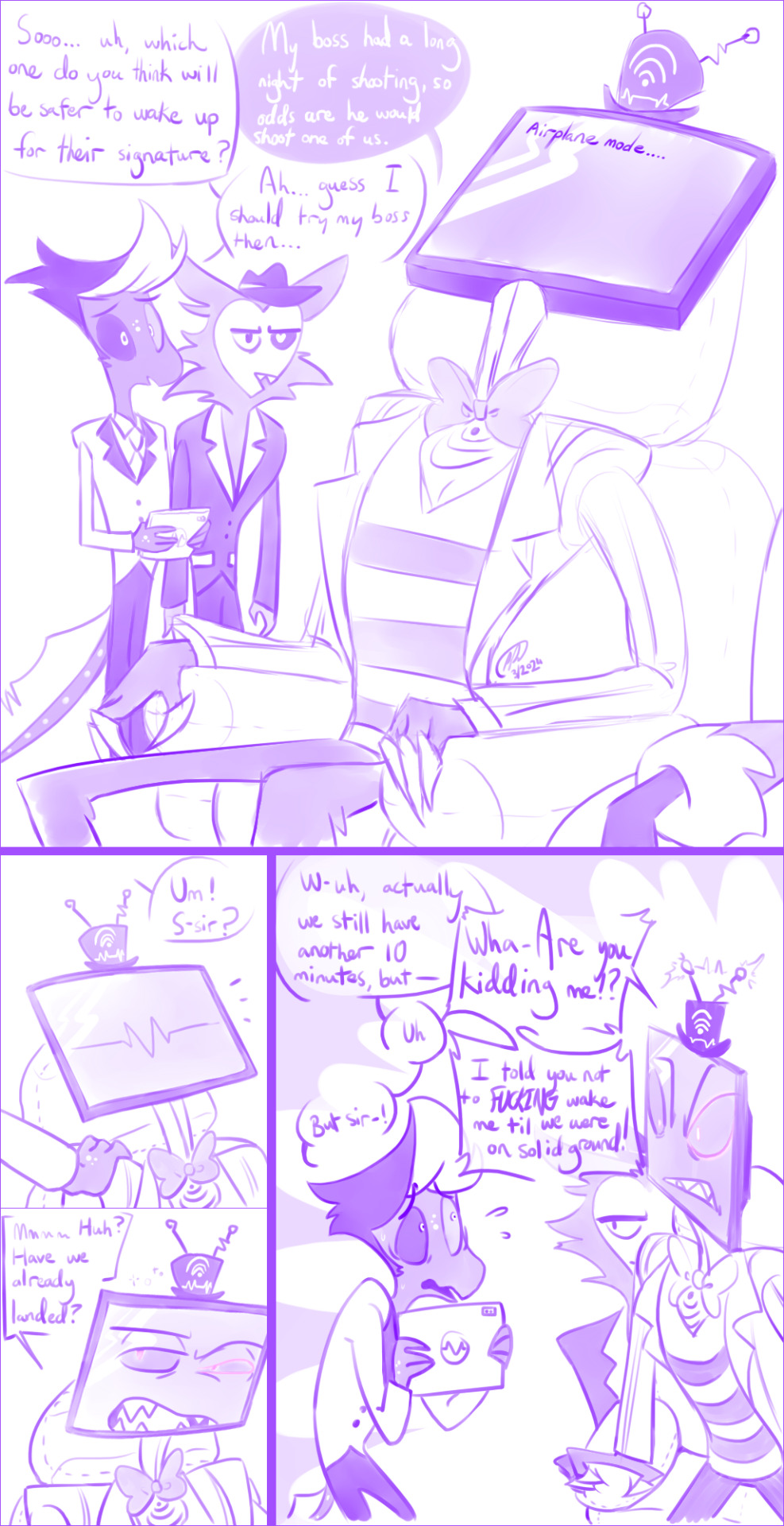
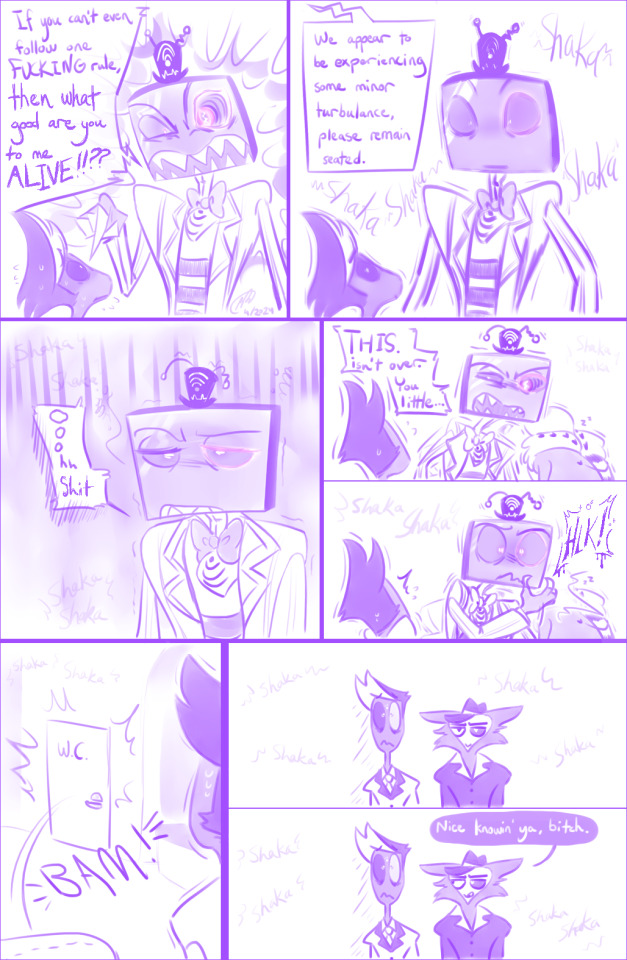
he puts himself on airplane mode for a reason
Edit: surprise part 2
-*-*Please do not repost without my permission*-*-
#this took way too long to finish and it's only a sketch lol *dies*#strabi art#hazbin hotel#hazbin hotel vox#vox hazbin hotel#hazbin vox#what's the employee called? i dont think he has a name#ppl are calling him papermint but why lol#does the valentino employee have a name too???#they are background characters but i like them lol#this is my headcanon that vox gets airsick as a foil to the fan hc that alastor gets seasick
675 notes
·
View notes
Text

a chat about change
#the stanley parable#the stanley parable ultra deluxe#tspud#tsp#crows art#meant to be part of a different thing altogether but. i kinda only liked how this comic came out lol#so you only get this part of it </3 sorry#employee 432#the settings person#stanley#this is meant to be during the epilogue btw
162 notes
·
View notes
Text
patience being tested. being forced by a bizarre unfortunate situation to adhere to university requirement technicality by taking this simple basic elementary "introduction to environmental history" class.
this class is from facilitators/program which do, like, "history of the American frontier" or "history of fishing and hunting" and still basically subscribe to that old-school twentieth-century idealization and celebration of characters like Teddy Roosevelt and reverence for a mythical arc-of-history-bent-towards-justice narrative of the often-clumsy but ultimately-benevolent US federal government and its mission to "save nature" through the miracle of "sustained yield," while heroic federal land management agencies and "heritage" institutions lead to way, staffed by exceptional individuals (appeals to nostalgia for the frontier and an imagined landscape of the American West; ego-stroking appeals to flattering self-image that center the environmentalist or academic). where they invoke, y'know, ideas like "ecology is important because don't you enjoy cross-country skiing in The Woods with your niece and nephew? don't you like hunting and fishing?" which makes it feel like a time capsule of appeals and discourses from the 1970s. and it invokes concept of "untouched wilderness" (while eliding scale of historical Indigenous environmental relationships and current ongoing colonial violence/extractivism). but just ever-so-slightly updated with a little bit of chic twenty-first-century flair like a superficial land acknowledgement or a reference to "labor histories" or "history from below," which is extra aggravating when the old ideologies/institutions are still in power but they're muddying the water and diluting the language/frameworks (it's been strange, watching words like "multispecies" and "Anthropocene" over the years slowly but surely show-up on the posters, fliers, course descriptions, by now even appearing adjacent to the agri-business and resource extraction feeder programs, like a recuperation or appropriation.) even from a humanities angle, it's still, they're talking at me like "You probably didn't know this, but environmental history is actually pretty entangled with political and social events. In fact, we can synthesize sources and glean environmental info from wacky places like workers' rolls in factories, ship's logs, and poetry from the era." and i'm nodding like YEP.
the first homework assignment is respond to this: "Define and describe 'the Anthropocene'. Do you think 'the Anthropocene' is a useful concept? Why or why not?" Respond in 300 words.
so for fun, right now in class, going to see how fast i can pull up discussion of Anthropocene-as-concept solely from my old posts on this microblogging site.
---
ok, found some
---
I think that the danger in any universal narrative or epoch or principle is exactly that it can itself become a colonizing force. [...] I’m suspicious of the Anthropocene as concept for the very reason that it subsumes so many peoples, nations, histories, geographies, political orders. For that reason, I think ideas like the Anthropocene can be a useful short-hand for a cluster of tangible things going on with the Earth at the moment, but we have to be very careful about how fluid and dynamic ideas become concretized into hegemonic principles in the hands of researchers, policymakers, and politicians. There’s so much diversity in histories and experiences and environmental realities even between relatively linked geographies here in Canada [...]. Imagine what happens when we try to do that on a global scale - and a lot of euro-western Anthropocene, climate change and resilience research risks doing that - eliding local specificities and appropriating knowledge to serve a broader euro-western narrative without attending to the inherent colonial and imperial realities of science and policy processes, or even attending to the ways that colonial capitalist expansion has created these environmental crises to begin with. While we, as a collective humanity, are struggling with the realities of the Anthropocene, it is dangerous to erase the specific histories, power-relations, political orders that created the crisis to begin with. So, I’m glad that a robust critique of the Anthropocene as a concept is emerging.
Text by: Words of Zoe Todd, as interviewed and transcribed by Caroline Picard. “The Future is Elastic (But it Depends): An Interview with Zoe Todd.” 23 August 2016.
---
---
---
The Great Acceleration is the latest in a series of human-driven planetary changes that constitute what a rising chorus of scientists, social scientists, and humanists have labeled the Anthropocene - a new Age of Humans. [...] But what the Anthropocene label masks, and what the litany of graphs documenting the Great Acceleration hide, is a history of racial oppression and violence, along with wealth inequality, that has built and sustained engines of economic growth and consumption over the last four centuries. [...] The plantation, Sidney Mintz long ago observed, was a “synthesis of field and factory,” an agro-industrial system of enterprise [...]. Plantation legacies, along with accompanying strategies of survival and resistance, dwell in the racialized geographies of the United States’ and Brazil’s prison systems. They surface in the inequitable toxic burdens experienced by impoverished communities of color in places like Cancer Alley, an industrial corridor of petrochemical plants running along the Mississippi River from New Orleans to Baton Rouge, where cotton was once king. And they appear in patterns of foreign direct investment and debt servitude that structure many land deals in the Caribbean, Brazil, and sub-Saharan Africa [...]. [C]limatologists and global change scientists from the University of London, propose instead 1610 as a date for the golden spike of the Anthropocene. The date marked a detectable global dip in carbon dioxide concentrations, precipitated, they argue, by the death of nearly 50 million indigenous human inhabitants [...]. The degradation of soils in the tobacco and cotton-growing regions in the American South, or in the sugarcane growing fields of many Caribbean islands, for example, was a consequence of an economic and social system that inflicted violence upon the land and the people enslaved to work it. Such violent histories are not so readily evident in genealogies that date the Anthropocene’s emergence to the Neolithic Revolution 12,000 years ago, the onset of Europe’s industrial revolution circa 1800, or the Trinity nuclear test of 1945. Sugarcane plantations were already prevalent throughout the Mediterranean basin during the late middle ages. But it was during the early modern era, and specifically in the Caribbean, where the intersection of emerging proto-capitalist economic models based on migratory forced labor (first indentured servitude, and later slavery), intensive land usage, globalized commerce, and colonial regimes sustained on the basis of relentless racialized violence, gave rise to the transformative models of plantations that reshaped the lives and livelihoods of human and non-human beings on a planetary scale. [...] We might, following the lead of science studies scholar Donna Haraway and anthropologist Anna Tsing, more aptly designate this era the Plantationocene. [...] It is also an invitation to see, in the words of geographer Laura Pulido, “the Anthropocene as a racial process,” one that has and will continue to produce “racially uneven vulnerability and death." [...] And how have such material transformations sustained global flows of knowledge and capital that continue to reproduce the plantation in enduring ways?
Text by: Sophie Sapp Moore, Monique Allewaert, Pablo F. Gomez, and Gregg Mitman. "Plantation Legacies." Edge Effects. 22 January 2019. Updated 15 May 2021. [Bold emphasis added by me.]
---
---
---
Geologists and other scientists will fight over [the definition of the beginning start-date of the Anthropocene] in scientific language, seeking traces of carbon dioxide that index the worst offenses of European empire which rent and violated the flesh, bodies, and governance structures of Indigenous and other sovereign peoples in the name of gold, lumber, trade, land, and power. [...] The stories we tell about the origins of the Anthropocene implicate how we understand the relations we have with our surrounds. In other words, the naming of the Anthropocene epoch and its start date have implications not just for how we understand the world, but this understanding will have material consequences, consequences that affect body and land.
Text by: Heather Davis and Zoe Todd. On the Importance of a Date, or Decolonizing the Anthropocene. ACME An International Journal for Critical Geographies. December 2017. [Bold emphasis added by me.]
---
---
---
From Aime and Suzanne Cesaire, C. L. R. James, Claudia Jones, Eduoard Glissant, through Sylvia Wynter, Christina Sharpe, and so many others, critical anticolonial and race theory has been written from the specific histories that marked the Black Atlantic. [...] Glissant also reminds us, secondly, of how cunning the absorptive powers of [...] liberal capitalism are - how quickly specific relations are remade as relations-erasing universal abstractions. [...] This absorptive, relations-erasing universalism is especially apparent in some contemporary discourses of […] liberalism and climate collapse - what some call the Anthropocene - especially those that anchor the crisis in a general Human calamity which, as Sylvia Wynter has noted, is merely the name of an overdetermined and specific [White] European man. […] [T]he condition of creating this new common European world was the destruction of a multitude of existing black and brown worlds. The tsunami of colonialism was not seen as affecting humanity, but [...] these specific people. They were specific - what happened to them may have been necessary, regrettable, intentional, accidental - but it is always them. It is only when these ancestral histories became present for some, for those who had long benefitted from the dispossession [...], that suddenly the problem is all of us, as human catastrophe.
Text by: Elizabeth Povinelli. “The Ancestral Present of Oceanic Illusions: Connected and Differentiated in Late Toxic Liberalism.” e-flux Journal Issue #112. October 2020.
---
The narrative arc [of White "liberal humanism"] [...] is often told as a kind of European coming-of-age story. […] The Anthropocene discourse follows the same coming-of-age [...] script, searching for a material origin story that would explain the newly identified trajectory of the Anthropos […]. Sylvia Wynter, W.E.B. DuBois, and Achille Mbembe all showed how that genealogy of [White subjecthood] was [...] articulated through sixteenth- through nineteenth-century [historiographies and discourses] in the context of colonialism, [...] as well as forming the material praxis of their rearrangement (through mining, ecological rearrangements and extractions, and forms of geologic displacements such as plantations, dams, fertilizers, crops, and introduction of “alien” animals). […] As Wynter (2000) commented, “The degradation of concrete humans, that was/is the price of empire, of the kind of [Eurocentric epistemology] that underlies it” (154).
Text by: Kathryn Yusoff. “The Inhumanities.” Annals of the American Association of Geographers, Volume 11, Issue 3. November 2020.
---
---
---
As Yarimar Bonilla suggests in regard to post-Irma-and-Maria Puerto Rico, “vulnerability is not simply a product of natural conditions; it is a political state and a colonial condition.” Many in the Caribbean therefore speak about the coloniality of disaster, and the unnaturalness of these “natural” disasters [...]. Others describe this temporality by shifting [...] toward an idea of the Plantationocene [...]. As Moore and her colleagues write, “Plantation worlds, both past and present, offer a powerful reminder that environmental problems cannot be decoupled from histories of colonialism, capitalism, and racism that have made some human beings more vulnerable [...].” [W]e see that contemporary uneven socioecologies associated with the rise of the industrial world ["the Anthropocene"] are based [...] also on the racialized denial and foreshortening of life for the sacrificial majority of black, brown, and Indigenous people and their relegation to the “sacrifice zones” of extractive industry. [...] [A]ny appropriate response to the contemporary climate emergency must first appreciate its foundations in the past history of the violent, coercive, transatlantic system of plantation slavery; in the present global uneven development, antiblackness, and border regimes that shape human vulnerability [...] that continues to influence who has access to resources, safety, and preferable ecologies [...] and who will be relegated to the “plantation archipelagoes” (as Sylvia Wynter called them) [...].
Text by: Mimi Sheller. “Thinking Beyond Coloniality: Toward Radical Caribbean Futures.” Small Axe (2021), 25 (2 (65)), pages 169-170. Published 1 July 2021. [Bold emphasis added by me.]
---
---
---
Indigenous genocide and removal from land and enslavement are prerequisites for power becoming operationalized in premodernity [...]; it was/is a means to operationalize extraction (therefore race should be considered as foundational rather than as periphery to the production of those structures and of global space). [...] Wynter suggests that we […] consider 1452 as the beginning of the New World, as African slaves are put to work on the first plantations on the Portuguese island of Madeira, initiating the “sugar-slave” complex - a massive replantation of ecologies and forced relocation of people […]. Wynter argues that the invention of the figure of Man in 1492 as the Portuguese [and Spanish] travel to the Americas instigates at the same time “a refiguring of humanness” in the idea of race. [...] The natal moment of the 1800 Industrial Revolution, […] [apparently] locates Anthropocene origination in […] the "new" metabolisms of technology and matter enabled by the combination of fossil fuels, new engines, and the world as market. […] The racialization of epistemologies of life and nonlife is important to note here […]. While [this industrialization in the nineteenth century] […] undoubtedly transformed the atmosphere with […] coal, the creation of another kind of weather had already established its salient forms in the mine and on the plantation. Paying attention to the prehistory of capital and its bodily labor, both within coal cultures and on plantations that literally put “sugar in the bowl” (as Nina Simone sings) […]. The new modes of material accumulation and production in the Industrial Revolution are relational to and dependent on their preproductive forms in slavery […]. In 1833, Parliament finally abolished slavery in the British Caribbean, and the taxpayer payout of £20 million in “compensation” [paid by the government to slave owners for their lost "property"] built the material, geophysical (railways, mines, factories), and imperial infrastructures of Britain and its colonial enterprises and empire. [...] A significant proportion of funds were invested in the railway system connecting London and Birmingham (home of cotton production and […] manufacturing for plantations), Cambridge and Oxford, and Wales and the Midlands (for coal). Insurance companies flourished [...]. The slave-sugar-coal nexus both substantially enriched Britain and made it possible for it to transition into a colonial industrialized power […]. The slave trade […] fashioned the economic conditions (and institutions, such as the insurance and finance industries) for industrialization.
Text by: Kathryn Yusoff. "White Utopia/Black Inferno: Life on a Geologic Spike". e-flux Journal Issue #97. February 2019. [Bold emphasis added by me.]
#sorry for being mean#instructor makes podcasts about cowboys HELP ME#and he recently won a New Business award for his startup magazine covering Democrat party politics in local area HELP#so hes constantly performing this like dance between new hip beerfest winebar coolness and oldfashioned masculinity#but hes in charge of the certificate program so i have to just shut up and keep my head down for approximately one year#his email address is almost identical to mine and invokes enviro history terms but i made mine long before when i was ten years old#so i could log in to fieldherpforum dot com to talk about enviro history of distribution range changes in local reptiles and amphibians#sir if you read my blog then i apologize ive had a long year#and i cant do anything to escape i am disabled i am constantly sick im working fulltime i have NO family i have NO resources#i took all of this schools graduate level enviro history courses and seminars years ago and ran the geography and enviro hist club#but then left in final semester because sudden hospitalization and crippled and disabled which led to homelessness#which means that as far as any profession or school is concerned im nobody im a retail employee#i was doing conference paper revisions while sleeping on concrete vomiting walking around on my cane to find outdoor wifi#and im not kidding the MONTH i got back into a house and was like ok going back to finish the semester the school had#put my whole degree program and department in moratorium from lack of funding#and so required starting some stuff from scratch and now feel like a hostage with debt or worsening health that could pounce any moment#to even get back in current program i was working sixteen hours a day to pay old library fines and had to delicately back out of workplace#where manager was straight up violently physically abusive to her vulnerable employees and threatened retaliation#like an emotional torturer the likes of which i thought existed only in cartoons#and the week i filed for student aid a massive storm had knocked out electricity for days and i was clearing fallen tree debris#and then sitting in the dark in my room between job shifts no music no phone no food with my fingers crossed and i consider it a miracle#sorry dont mean to dramatize or draw attention to myself#so actually im happy you and i are alive
134 notes
·
View notes
Note
tell ren to turn his location on👉👈
I saw one of the posts of how ren does get jealous of pets being loved over him and alll that so now I have the thought of the one meme of ‘ah yes, me, my partner and their [enter normal pet size] foot [pet]’

I don’t have anything else, it did pop into my head though and I thought I’d share with the class.
⌞♥⌝ ItsNotVivy on Twitter actually made that exact meme with Ren a looong time ago!!
#💌 — answered.#💖 — 14 days with queue.#thegoofyest#In Viv we trust 😌 They were one of the very first people to take an interest in 14DWY!! /gen#Dare I say..... One of the founding fathers lmaooooo#Also!! Viv (along with a few other twitter artists) were one of the main reasons why I started this Tumblr in da first place! ^^#14DWY didn't have much of a following until they started makin memes and art on Twitter#Then all of a sudden I had all these people wanting to know more about the game; and da next thing I knew; I had over 50 asks overnight lol#So I owe a lot of 14DWY's success to ItsNotVivy; hmimprvmntbsmnt; dreosuger; Diachuu; glade_o; Meowastrophe; noullyart; etc.#And it's also the reason why I wanna show my appreciation towards them all by giving them Easter Eggs in the game#I also kind feel like it's the very least I can do to show my appreciation ghjsgjh ;v; Same with da 14DWY staff on Discord#It's the only place where I ask for help regarding managing the 14DWY socials (everywhere else is just me); and they go through hell n back#—to keep the server a fun and lively place for everyone#I owe so much to them as well; which is why some of da mods already have their own lil Easter Eggs in the game#I also like to think they're canon employees at the Corland Bay library gsdjgjg Except Jesse; that mf would set everything on fire /silly#Also not me getting mushy in the tags????????? What is happening to me.... Where is my mysterious and aloof persona...... /j#I'll shuddup now before I start crying (/pos) over the founding fathers on Tumblr as well lmao
202 notes
·
View notes